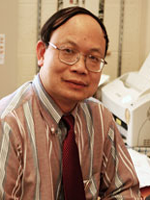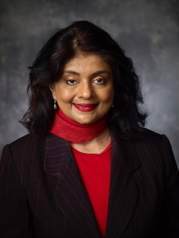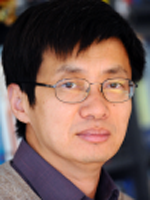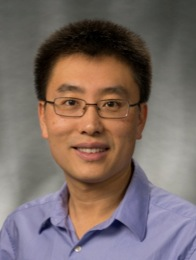

Prof. Sun-Yuan Kung IEEE Fellow, Princeton University, USA |
Bio: Professor S.Y. Kung received his Ph.D. Degree in Electrical Engineering from Stanford University in 1977. In 1974, he was an Associate Engineer of Amdahl Corporation, Sunnyvale, CA. From 1977 to 1987, he was a Professor of Electrical Engineering-Systems of the University of Southern California, L.A. Since 1987, he has been a Professor of Electrical Engineering at the Princeton University. In addition, he held a Visiting Professorship at the Stanford University (1984); and a Visiting Professorship at the Delft University of Technology (1984); a Toshiba Chair Professorship at the Waseda University, Japan (1984); an Honorary Professorship at the Central China University of Science and Technology (1994); and a Distinguished Chair Professorship at the Hong Kong Polytechnic University since 2001. His research interests include VLSI array processors, system modelling and identification, neural networks, wireless communication, sensor array processing, multimedia signal processing, bioinformatic data mining and biometric authentication.
Professor Kung has authored more than 400 technical publications and numereous textbooks, Professor Kung has co-authored more than 400 technical publications and numerous textbooks including "VLSI and Modern Signal Processing," with Russian translation, Prentice-Hall (1985), "VLSI Array Processors", with Russian and Chinese translations, Prentice-Hall (1988); "Digital Neural Networks", Prentice-Hall (1993) ; "Principal Component Neural Networks", John-Wiley (1996); and "Biometric Authentication: A Machine Learning Approach", Prentice-Hall (2004).
Professor Kung is a Fellow of IEEE since 1988. He served as a Member of the Board of Governors of the IEEE Signal Processing Society (1989-1991). He was a founding member of several Technical Committees (TC) of the IEEE Signal Processing Society , including VLSI Signal Processing TC (1984), Neural Networks for Signal Processing TC (1991) and Multimedia Signal Processing TC (1998), and was appointed as the first Associate Editor in VLSI Area (1984) and later the first Associate Editor in Neural Network (1991) for the IEEE Transactions on Signal Processing. He presently serves on Technical Committees on Multimedia Signal Processing. Since 1990, he has been the Editor-In-Chief of the Journal of VLSI Signal Processing Systems.
Professor Kung was a recipient of IEEE Signal Processing Society's Technical Achievement Award for his contributions on "parallel processing and neural network algorithms for signal processing" (1992); a Distinguished Lecturer of IEEE Signal Processing Society (1994) ; a recipient of IEEE Signal Processing Society's Best Paper Award for his publication on principal component neural networks (1996); and a recipient of the IEEE Third Millennium Medal (2000).
|

Dr. Bhavani Thuraisingham Louis A. Beecherl, Jr. I, Distinguished Professor Department of Computer Science Executive Director of the Cyber Security Research Institute Erik Jonsson School of Engineering and Computer Science The University of Texas at Dallas |
Bio: Dr. Bhavani Thuraisingham is the Louis A. Beecherl, Jr. Distinguished Professor of Computer Science and the Executive Director of the Cyber Security Research and Education Institute (CSI) at The University of Texas at Dallas. She is an elected Fellow of IEEE, the AAAS, the British Computer Society, and the SPDS (Society for Design and Process Science). She received several prestigious award including IEEE Computer Society's 1997 Technical Achievement Award for “outstanding and innovative contributions to secure data management”, the 2010 ACM SIGSAC (Association for Computing Machinery, Special Interest Group on Security, Audit and Control) Outstanding Contributions Award for “seminal research contributions and leadership in data and applications security for over 25 years” and the SDPS Transformative Achievement Gold Medal for her contributions to interdisciplinary research. She has unique experience working in the commercial industry (Honeywell), federal research laboratory (MITRE), US government (NSF) and academia and her 35 year career includes research and development, technology transfer, product development, program management, and consulting for the federal government. Her work has resulted in 100+ journal articles, 200+ conference papers, 100+ keynote and featured addresses, eight US patents (three pending) and fifteen books (two pending). She received the prestigious earned higher doctorate degree (DEng) from the University of Bristol England in 2011 for her published work in secure data management since her PhD. She has been a strong advocate for women in computing and has delivered featured addresses at events organized by the CRA-W (Computing Research Association) and SWE (Society for Women Engineers).
Title: CLOUD-CENTRIC ASSURED INFORMATION SHARING Abstract: This presentation will describe our research and development efforts in assured cloud computing for the Air Force Office of Scientific Research. We have developed a secure cloud computing framework as well as multiple secure cloud query processing systems. Our framework uses Hadoop to store and retrieve large numbers of RDF triples by exploiting the cloud computing paradigm and we have developed a scheme to store RDF data in a Hadoop Distributed File System. We implemented XACML-based policy management and integrated it with our query processing strategies. For secure query processing with relational data we utilized the HIVE framework. More recently we have developed strategies for secure storage and query processing in a hybrid cloud. In particular, we have developed algorithms for query processing wherein user’s local computing capability is exploited alongside public cloud services to deliver an efficient and secure data management solution. We have also developed techniques for secure virtualization using the XEN hypervisor to host our cloud data managers as well as an RDF-based policy engine hosted on our cloud computing framework. Finally we have developed a secure social media framework hosted on our secure cloud computing framework. The presentation will discuss our secure cloud computing framework for assured information sharing and discuss the secure social media framework. We will then discuss the relationship to big data security and privacy aspects and connect our research to Secure Internet of Things with a special emphasis on data privacy. |

Prof. Xiaodong Wang IEEE Fellow, Columbia University, USA |
Bio: Professor Xiaodong Wang was an assistant professor from July 1998 to December 2001 at the Department of Electrical Engineering at Texas A&M University. In January 2002, he joined the Department of Electrical Engineering at Columbia University as an assistant professor. Dr. Wang's research interests fall in the general areas of computing, signal processing, and communications. He has worked and published extensively in the areas of wireless communications, statistical signal processing, parallel and distributed computing, nanoelectronics, and quantum computing. Dr. Wang has received the 1999 NSF CAREER Award. He has also received the 2001 IEEE Communications Society and Information Theory Society Joint Paper Award.
|

Prof. Jianhui Wang (Section Manager, Advanced Power Grid Modeling Energy Systems Division Argonne National Laboratory University of Notre Dame) |
Bio:
Dr. Jianhui Wang is the Section Manager for Advanced Power Grid Modeling at Argonne National Laboratory. He is the Secretary of the IEEE Power & Energy Society (PES) Power System Operations Committee. He has authored/co-authored more than 150 journal and conference publications. He is an editor of Journal of Energy Engineering and Applied Energy. He received the IEEE Chicago Section 2012 Outstanding Young Engineer Award and is an Affiliate Professor at Auburn University and an Adjunct Professor at University of Notre Dame. He has also held visiting positions in Europe, Australia and Hong Kong including a VELUX Visiting Professorship at the Technical University of Denmark (DTU). Dr. Wang is the Editor-in-Chief of the IEEE Transactions on Smart Grid and an IEEE PES Distinguished Lecturer. He is the recipient of the IEEE PES Power System Operation Committee Prize Paper Award in 2015.
|




